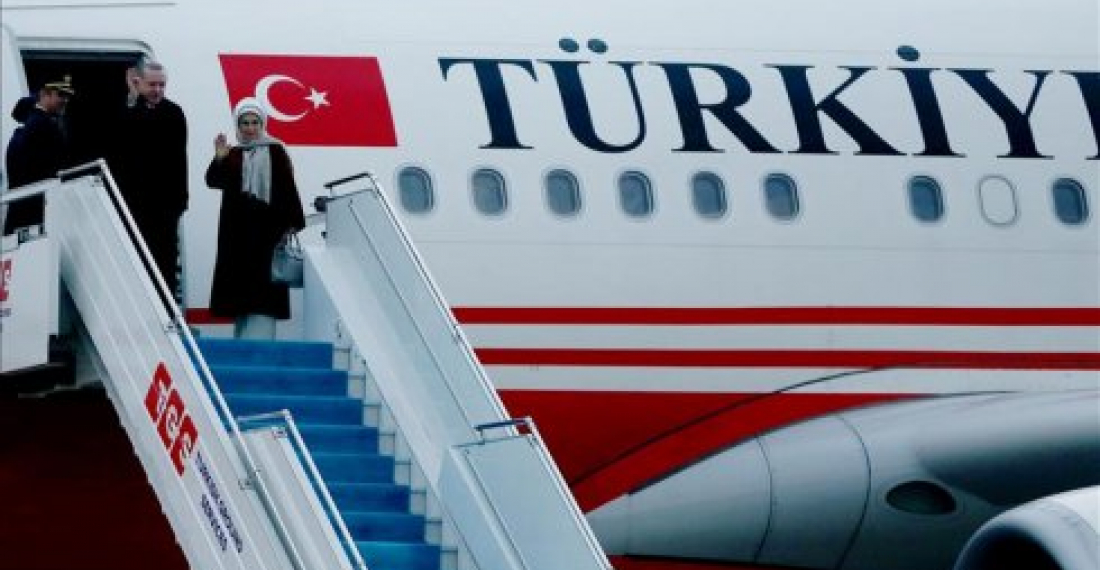Turkish President Recep Tayyip Erdogan arrived in Paris on Friday for a one-day visit.
During his stay, Erdogan will have a private meeting with French President Emmanuel Macron at the Elysee Palace.
The two presidents are also set to participate in a meeting of the two countries' respective delegations. Erdogan and Macron will later hold a joint news conference.
Economic cooperation, bilateral trade, defense industry, counterterrorism and regional issues are expected to be on the table during the two leaders' talks as well as ties between Turkey and France.
Erdogan is accompanied by Turkish Foreign Minister Mevlut Cavusoglu, Energy Minister Berat Albayrak, EU Minister Omer Celik and Defense Minister Nurettin Canikli.
source: commonspace.eu with Andadolu News Agency, Ankara
photo: President Erdogan and his wife embarking on the official plane prior to their departure to Paris on 5 January 2018 (picture courtesy of Andadolu News Agency)






